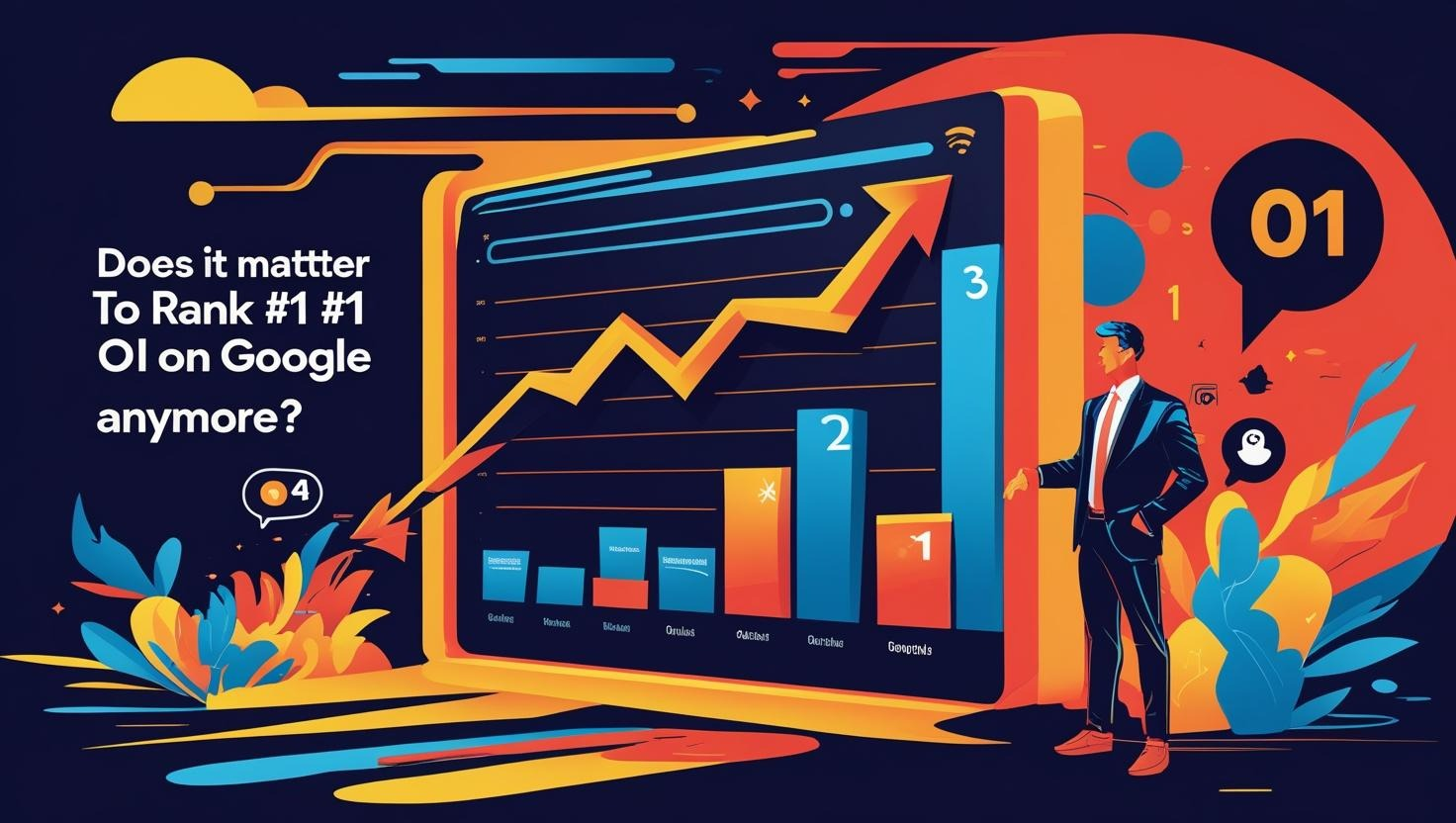Introduction
For decades, the holy grail of digital marketing has been to claim the coveted #1 spot on Google’s search results. Businesses have invested billions in search engine optimization (SEO) with the belief that being first means being found, trusted, and chosen. But as Google’s algorithms evolve, search results become more dynamic, and user behavior shifts, a new question emerges: Does it still matter to rank #1 on Google in 2025?
This comprehensive guide explores the modern value of ranking #1, featuring expert opinions, real-world experiences, data-driven analysis, and practical strategies. Whether you’re a business owner, marketer, or SEO enthusiast, this article will help you understand what truly matters for online visibility and sustainable growth.
Table of Contents
- The Historical Power of Ranking #1
- How Google’s Search Has Changed
- Do Clicks Still Go to #1? The Latest Data
- Expert Opinions: Is #1 Still the Goal?
- Real Experiences: What Marketers Say
- Key Google Ranking Factors in 2025
- Questions and Answers
- Actionable SEO Strategies for 2025
- Conclusion: What Really Matters Now

The Historical Power of Ranking #1
Traditionally, ranking #1 on Google meant:
- Maximum visibility: The top spot was the first thing users saw.
- Highest click-through rates (CTR): Studies showed the #1 result could get 30% or more of all clicks for a given query.
- Brand authority: Users perceived top-ranked sites as more credible and trustworthy.
“Traffic generated by rank one is almost twice that of rank 2. A single rank position can instantly double the traffic to a page.” — Quasa
How Google’s Search Has Changed
Fast-forward to 2025, and the search landscape looks very different:
- SERP Features: Featured snippets, People Also Ask, local packs, ads, and video carousels now dominate above-the-fold space.
- Personalization: Search results are increasingly tailored to user behavior, location, and device.
- Zero-Click Searches: Many queries are answered directly on the SERP, reducing clicks to websites.
- Paid Listings: Ads blend in more with organic results, capturing a higher share of clicks[3].
“Paid listings blend in—which helps ads generate a higher percentage of the clicks. Organic results are pushed down.” — Neil Patel
Do Clicks Still Go to #1? The Latest Data
While #1 still gets more clicks than any other single position, the gap is narrowing:
- CTR for #1: The average click-through rate for the top result is about 27.6%, but this varies by query and device.
- CTR Drop-off: Rank 2 gets roughly half the traffic of rank 1. By rank 3, it’s down to about 10%, and lower positions see even less.
- SERP Features Impact: Featured snippets, ads, and other elements can steal clicks from the #1 organic result.
| Position | Average CTR (%) |
|---|---|
| 1 | 27.6 |
| 2 | 14 |
| 3 | 10 |
| 4+ | 5 or less |
Key Insight: Ranking #1 is still valuable, but the benefits are diluted by new SERP features and changing user habits.
Expert Opinions: Is #1 Still the Goal?
The Case For #1
- Visibility and Trust: “High organic traffic endorses a brand’s image by communicating trust and quality… the top ranking indicates trustworthiness, relevance, utility, and credibility.” — Backlinko[4]
- Competitive Edge: “Bigger traffic numbers can bring more sales, better conversions, and overall brand awareness over rivals.” — Backlinko
The Case Against Obsessing Over #1
- Intent Over Position: “Ranking your site first doesn’t make any sense… the only thing that matters is are you making more money. You can be ranking first for a bunch of keywords that don’t give you any value.” — SEO Coach
- No Guarantees: “No one can guarantee a #1 ranking on Google. Beware of SEOs that claim to guarantee rankings…” — Google Search Central.
- Clicks Don’t Always Equal Conversions: “Number 1 doesn’t guarantee the most clicks… getting there doesn’t guarantee the most amount of traffic.” — Neil Patel
Real Experiences: What Marketers Say
Case Study 1: High Traffic, Low Conversions
“We got a ton of traffic to this page but literally nobody bought. I checked every single session and nobody even created an account.” — SEO Coach
Case Study 2: Authority and Backlinks
“A site’s overall link authority strongly correlates with higher rankings. The #1 result has an average of 3.8x more backlinks than positions #2-#10.” — Backlinko
Community Insights
- Reddit SEO Pros: “It’s impossible for anyone to assure a top position… there are too many variables I can’t control to guarantee results.” — FirstPlaceSEO
- LinkedIn Experts: “Ranking #1 on Google is impressive, but it’s not the whole story. SEO is about much more than just achieving top positions.” — Deepak Sharma
Key Google Ranking Factors in 2025
According to the latest industry research, these are the most important factors for ranking in Google today.
- High-Quality, Satisfying Content: Google rewards content that fully satisfies user intent and is updated regularly.
- Backlinks: Authority and diversity of links remain crucial, but content quality now outweighs sheer backlink volume.
- Technical SEO: Fast, mobile-optimized, and crawlable sites perform better.
- Keyword Optimization: Strategic use of keywords in titles and content, but not keyword stuffing.
- User Experience (UX): Sites that are easy to navigate, engaging, and keep users on the page rank higher.
- Brand Signals: Strong brand presence and positive reputation boost rankings.
- Schema Markup: Helps Google understand your content, though its direct impact on rankings is debated.
Notably: Google’s algorithm now prioritizes satisfying content and user intent above all else.
Questions and Answers
Q1: Is it still worth aiming for #1 on Google?
A: Yes, but with caveats. Ranking #1 still brings more visibility and clicks, but the value depends on the query, SERP layout, and user intent. Focus on ranking for keywords that drive real business results, not just vanity metrics.
Q2: Can a new website rank #1 in 2025?
A: It’s possible, but challenging. By following best SEO practices—creating valuable content, building quality backlinks, and optimizing for user experience—a new site can compete, though it may take time.
Q3: What matters more than ranking #1?
A: Satisfying search intent, converting visitors, and building authority. Sometimes, ranking #2 or #3 for a high-converting keyword is more valuable than being #1 for a low-intent query.
Q4: How important is mobile optimization?
A: Crucial. Google prioritizes mobile-friendly sites, and most users search on mobile devices. A seamless mobile experience is essential for high rankings.
Q5: Do backlinks still matter?
A: Yes, but quality over quantity. Backlinks from reputable sources boost authority, but Google now weighs content quality and relevance more heavily.

Actionable SEO Strategies for 2025
To succeed in modern SEO, focus on these proven tactics:
1. Create Satisfying, In-Depth Content
- Address the full scope of user intent.
- Update content regularly.
- Use multimedia (images, video, infographics) to enhance engagement.
2. Build Quality Backlinks
- Guest post on reputable sites.
- Collaborate with industry influencers.
- Create shareable resources and original research.
3. Optimize for User Experience
- Ensure fast load times and mobile responsiveness.
- Simplify navigation and reduce clutter.
- Use clear calls-to-action (CTAs) that align with user goals.
4. Target the Right Keywords
- Focus on keywords with clear intent and business value.
- Use long-tail keywords for higher conversion rates.
- Regularly review and update your keyword strategy.
5. Leverage SERP Features
- Optimize for featured snippets by answering common questions concisely.
- Use schema markup to enhance visibility in rich results.
- Target “People Also Ask” and related queries.
6. Monitor and Adapt
- Track rankings, CTR, and conversion metrics—not just traffic.
- Stay updated on Google algorithm changes.
- Continuously test and refine your SEO strategies.
Conclusion: What Really Matters Now
Ranking #1 on Google is still a valuable achievement, but it’s no longer the sole—or even the most important—goal in SEO. The modern search landscape rewards those who:
- Understand and satisfy user intent
- Deliver exceptional user experiences
- Build authority and trust
- Adapt to evolving algorithms and SERP features
“SEO is about much more than just achieving top positions.” — Deepak Sharma
Instead of chasing the #1 spot for every keyword, focus on what drives real value for your business: relevance, engagement, and conversions. In 2025 and beyond, those who put users first will win—regardless of their exact position on Google.
Ready to future-proof your SEO? Focus on what matters most: your audience, your content, and your results.
References: All claims, data, and quotes are supported by leading SEO authorities and recent research.


